Segments from R.M. Dolin’s novel, What Is To Be Done, that captures the love affair between Jake and Emelia in reverse order.
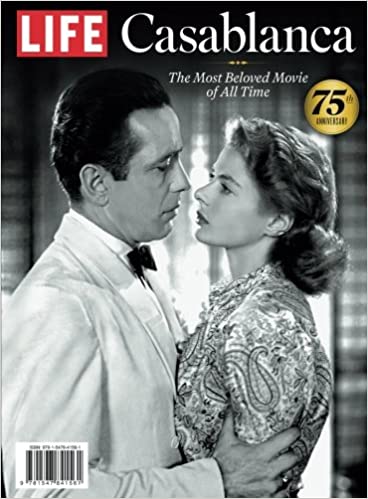
Summary: Jake and Emelia met forty-seven years ago at a Paris café while Jake was in town presenting at an engineering conference. Though still in graduate school, Emelia fell hard, fast, and forever in love with this awkward PhD from New Mexico. Now, three months after Emelia’s seemingly sudden death, Jake still has not reconciled his post-Emelia life. Every morning is a struggle for Jake as he strives to come to terms with his loss.
Prelude to a Touch
It’s late in the season of still so much to do, where the frail permanence in magic and memories built on the ebb and flow of puts and gets judges those who resist the obviousness of moments rather than the awkwardness of context. It’s why Jake sits stoically on the edge of his predawn darkness. A silhouette on black. A contrast in relativity. A contradiction to the late spring Santa Anas churning the Upper Rio Grande valley in a cold vortex of sinister foreboding that stirs the still dead quiet of night. How can anyone sleep with so much unsettled? How is it possible to pretend the placid security of dreams are enough to keep the desperation of life and the unforgiving absoluteness of solitude at bay?
Yielding to suffocating stillness, Jake’s gaunt unshaven face collapses into his hard calloused hands. Stiff fingers press against bones that each day grow more pronounced, each graying whisker a thorny reminder of realities he can’t escape. Jake needs his first thoughts to be of Emelia. Yes he’s awake and ready for his ride, yet he waits. Only after her alarm’s reassurance can he leave. Only that provides the context he so desperately seeks for everything that’s sure to follow.
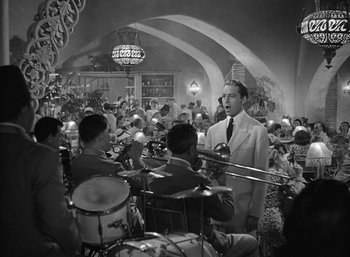
Years ago Emelia downloaded a song from the movie Casablanca as her alarm tone. Not ‘As Time Goes By,’ as everyone assumes, but the French National Anthem from the night in Rick’s Café when Laszlo rallies his fellow expatriates to openly defy their German oppressors. Laszlo is Emelia’s most noble literary hero, she often reminds Jake that true heroes fight for causes regardless of consequence. Of all the charming things he admires about his beloved wife, Jake’s most impressed by the way Emelia draws inspiration from a movie and uses that as her foundational philosophy.
Each night Emelia sets her phone on the nightstand and promptly sleeps through the alarm forcing Jake to crawl over her to turn it off. ‘Oh mon amour,’ she teases in a sultry voice rich with French overtones when he complains. ‘It is this side of heaven to awaken with your naked body pressing against mine.’
“How does a rational man respond to that?” Jake asks the darkness while reaching despondently for the alarm’s off button. With recursive regularity he reviews the starkness of his world one last time before willing himself up from his bittersweet bed. Stiffly he strides toward the unlit hallway, his bike cleats tapping out a lonely cadence on the hardwood floor in amplifying echoes of resignation. Uncertain if his next breath is determined, instinctual, or even worth the effort, Jake pushes past the kitchen shadows certain of life’s singular certainty; there are no redoes.
The next morning
La Marseillaise
Jake is awake and dressed ahead of Emelia’s five o’clock alarm. How can he sleep with everything that’s happened? How can anyone? What went down last night is so far off the charts, charts no longer apply. In Jake’s quietly protected world, things like that simply don’t happen. You hear stories of course, just never image they might involve you. “I’m no hero,” he whispers to the stillness. “What the hell was I thinking?”
Jake stares at the gold framed photograph in his hands. It’s a picture of Emelia the day after their wedding when they returned to their first date café in Paris to re-enacted how fate brought them together.
“A man’s gotta step-up, right?” He gently ask while caressing Emelia’s cheek through the glass. “That’s what you always say.” He smiles, welcoming the way happier memories trump the moment. “How does a joker like me, wind up with someone like you?”
The room’s so dark Jake can’t make out the photograph’s details but it doesn’t matter, her details are forever etched in more than memories and tactile touch.
“Best to file last night under ‘S’ for surreal.”
Darkness ensconces Jake in solitude. Sitting on the edge of his bed, he pensively waits; an isolated man at one with the void. Only after the French musicians have their go at La Marseillaise can he leave for his morning ride. Only after being reassured of the many ways his life is blessed.
The next morning
La Marseillaise Redux
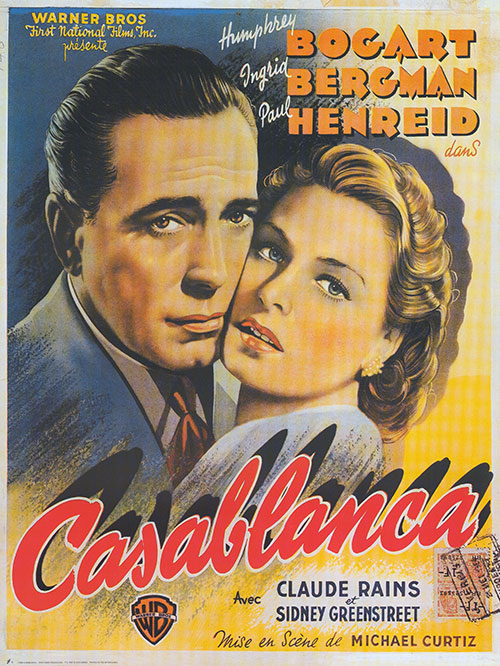
Jake pensively awaits, how can anyone burdened with so much possibly sleep? When night becomes a heartless warden abandoning souls to the quiet of darkness, only the timid tension of thoughts can meter the minutes.
Jake’s always been responsible. A man does not spend his life doing the things he’s done without possessing a keen sense of obligation. He’s not opposed to change, after all, a core trait of intellectuals is embracing the new and different. His unsettled tension stems from knowing something must be done but not knowing how to go about it.
“What the hell is a man like me supposed to do with someone like her?” he reiterates. There’s no answer of course, which is why he sits patiently on the edge of his darkness waiting for La Marseillaise to propel today into his calculus of chaos.
“You would be proud,” he reaffirms to the shadows while gingerly holding Emelia’s phone in his ruminative hand determined to keep his deepest memory at bay. To make today the rare time he doesn’t rise only to fall into the abyss of his personal hell.
The phone was in Emelia’s purse the night Jake drove her frantically to the hospital. He retraces how he raced down cemetery hill into Santa Fe along Saint Francis, reassuring her everything’s going to be alright. He remembers holding her hand while navigating Saint Michael’s exit, talking about a vacation he’s planning. He remembers helping her through the doors of Saint Vincent’s emergency room and easing her gently into a wheel chair before being forced to let go.
These scenes are deeply burned in the abject starkness of his reoccurring memory. There’s little else in the following days he recalls, except bits and pieces of Padre relentlessly by his side, along with Padre’s failed attempts to explain the mysterious way God’s invisible hand moves across our lives. He remembers painfully lamenting that his faith was not as strong as Emelia’s, and wishing he at least had a better relationship with Padre. These random details he can recall about those desperate days, but little else.
The next morning
Alternate Ending
Like every predawn morning for the past three months, Jake awakens somewhere between a memory and a dream. In that surreal purgatory, short of here and not really there. Saturday night’s tsunami and its after-effects reverberating through Sunday all the way to last night has left Jake needing to launch today with some sense of routine. This is why he waits. Soon the French National Anthem sung in Morocco, at a café called the Americana, will vault him into the systemic swirl of entropy that envelopes his life.
“I wish we could talk,” Jake whispers to his cherished photograph while delicately tracing tired fingers over the barrier glass. He allows his cavalcade of memories to transfer to tactile touch. “You no doubt noticed, I’m not getting much right lately.”
With regrettable regularity, the unscrupulous warden of the dark ushers Jake deep into the long corridor of agonizing memories and regrets, stopping at the entrance of the night he tried, but just couldn’t find a way, to say good-bye.
He remembers someone helping inside his home for the first time in days; probably Padre. He’s never mustered the will to find out, not knowing means maybe he never came home. That all of this really is the nightmare it seems to be. Knowing comes with consequences Jake would rather not own. Instead, he does just what he did after he got home that dreadful night; stare blankly into the infinity of his nothing, devoid of thought. Successfully avoiding having to come to terms with what it means to be a victim of utter emptiness.
The day of his last good-bye was the longest, saddest a life can contain. On rare occasions, when he’s able to force himself, Jake can vaguely recall some well-intended friend departing. Of numbly plopping down on the living room couch too exhausted for cognition. One moment he’s being reassured by whoever brought him home that things get better and the very next moment it’s five AM and the French National Anthem is rousting him to his new reality. In vivid detail he remembers rolling to his left as he’s done for years expecting to feel Emelia’s warmth beside him, only that morning, he instead rolls off the living room couch colliding with the absoluteness of his unforgiving hardwood floor.
After overcoming dazed confusion, Jake realizes the music’s coming from the box a nurse had given him on his way out of the hospital. La Marseillaise is only part way through when in an act of divine irony, the battery dies.
Jake remembers staring at the box feeling the numbing weight of his life draw down any sense of hope or happiness. Without thought or expectation, he rummages for her phone. Becoming one with the alabaster void, he trudges to their bedroom and plugs the phone into the charger on Emelia’s nightstand. Then, with overwhelming trepidation, he lies down uncertain he’s allowed or even welcome in their bed.
As that pre-sleep state simultaneously shared by the conscious and subconscious takes control, the impact of everything that’s happened cascades over him like a waterfall of marbles. He lays on his side of their bed mourning for the first time. The pain of his loss so infinitely profound that tears continue to wash down his unshaven face long after exhaustion conquers sleeplessness. His last thought is the smell of Emelia on the pillow, a necessary reassurance he so desperately needs.
His very next thought is the rattled awareness that Laszlo’s once again taken up a heroic, albeit lonely, stand on the stage in front of the orchestra as the band again plays La Marseillaise.
Jake watches the moonrise while sipping Bourbon
Aroma of Memories
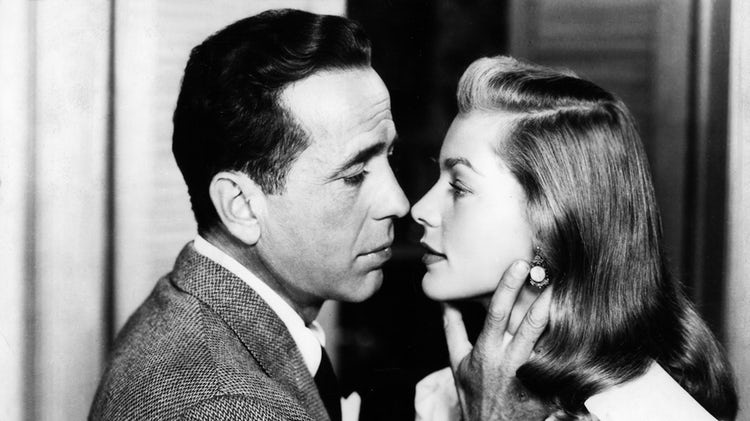
“Here we go, honey,” Jake softly whispers to the pre-moon night as he settles into the canvas camping chair he’s positioned in the entryway of his spirits aging room. Once settled, he evaluates the diminishing status of his bourbon glass. The main door of the barrel room faces east toward the Sangres rising like a formidable fortress hovering over his property in a majestic mix of mystic wonder and impenetrable power. From where he sits the snow covered peaks seem to hold up heaven itself while being close enough to touch.
Jake gazes deep into the still moonless sky contemplating the implications of time travel. Thoughts take him beyond what can be held, touched, or known with certainty as he slowly sips his bourbon and marvels at the way wind swept peaks rise above his house like giant space aliens.
Slowly, he saunters into the barrel room pausing to appreciate the two-hundred barrels of bourbon, rye whiskey, and brandy he and Emelia put up over the years. The brandy barrels are neatly stacked four high along the south wall with their pristine heads proudly promoting each French cooperage that crafted the barrel. Bourbon and rye barrels line the other three walls, their barrel heads are uniquely branded with Jake’s company logo and a collage of black stains from whiskey that’s tried to escape.
Jake ages bourbon in new Missouri oak barrels. While there’s no regulation regarding how Rye whiskey should be aged, he uses Missouri oak as well. One feature of American whiskey barrels is they leak. To mask their lack of quality, American Coopers invented the term ‘Angel’s Share,’ as a way of quantifying the portion of a barrel’s contents lost to leakage. Jake’s found that in the hot dry New Mexico climate, Angels claim about five percent of a barrel’s volume per year. While it sucks losing volume, American barrels only costs one-hundred and fifty dollars, whereas an equivalent French brandy barrel, with higher grade materials and craftsmanship, costs fifteen-hundred dollars. Per federal regulations, bourbon barrels can only be used once, while brandy barrels can be reused indefinitely. With a tighter seal and ability for reuse, the more expensive French barrels actually have a lower life-cycle cost.
Better quality French barrels is why Jake’s brandy contributes so little to the barrel room’s aroma relative to his leaky whiskey barrels and their angel’s share. It’s why on nights like this Jake sets up in front of the barrel room, the alluring aroma of whiskey vapors is nothing short of intoxicating. While nosing a glass of bourbon takes Jake through the journey that spirit took from raw grain to bottle, standing in the barrel room immerses him in a symphony of memories emanating from over a hundred barrels. The conjuring of emotions is like a maestro’s mesmerizing music where each barrel contributes a unique texture. On a good night, Jake’s able to summon memories and emotions all the way back to the first barrel of blue corn bourbon he and Emelia put up; a barrel he still holds in inventory.
Stepping into the aging room is equivalent to stepping back in time, each barrel possessing treasured memories, each rack of barrels capturing ensemble moments. Depending on where Jake stands, different memories are conjured. His sacred spot is the back corner where the oldest barrels live; where his most treasured blue bottle barrels rest. Jake’s barrel management philosophy is to completely drain a barrel once unsealed. His blue bottle barrels are the exception; these barrels are siphoned off one bottle at a time. He does not dilute this bourbon with water to achieve a desired proof, nor does he filter. Too much of the magic that time, nature, and kismet instilled in the spirit is lost during normal bottle prep.
“Everything I own,” Jake tells his angel, “even my life, matters less than our blue bottle bourbon.” He closes his eyes allowing tonight’s aromas to loft him over happier times. “No doubt you’ve noticed I’m dealing with some pretty surreal stuff lately.”
The danger with time travel that even Einstein never mitigated, is controlling how far back you go and where you end up. In the spirits aging room, time and place are determined by bourbon barrels and how his Angel takes her share. For all the difficulties Einstein had perfecting time travel, it’s a relatively routine undertaking for Jake. Most nights he soaks in the gestalt of aromas. When focused on individual barrels he’s taken to exact moments in time. His blue bottle barrels usually transport him to happy moments with Emelia, but regrettably, sometimes they steer him to the night of his ill-fated drive to Santa Fe and the terribly dark days that followed.
Jake’s learned that when feeling deep and reflective the aroma of blue bottle bourbon teleports him directly to the night his angel began her good-bye. He recognized as soon as he set up to watch the moon-rise, this was one of those nights. So rather than risk the back corner, he opts for the center of the room allowing the symphony of aromas to serenade softer memories. Most nights that’s sufficient. Tonight, probably on account of what the May moon means, it’s more of a struggle.
The spirits warehouse is a framed stucco structure sandwiched between the distillery and wine warehouse. It has a large ten foot by ten foot door permitting tall or wide loads to move in and out with a forklift. The view from the doorway to the majestic Sangre’s is Jake’s fondest. Moon-rise over the Sangre’s are far more spectacular than sunrise due in part to the fact you can watch a moon rise. At certain times in the lunar calendar, the full moon crests the Sangre’s as a massive blood orange ball illuminating the dark New Mexico sky in an unmatched cosmic show of color and intensity. Tonight’s moon-rise is extra special because it occurs in the saddle between Tres Padres and Santa Fe Baldy, the two tallest peaks in the Sangres. Watching the event from the warehouse doorway is a much anticipated tradition he and Emelia began even before they bought the place.
“Tonight’s our anniversary moon,” Jake reminds his angel. In solemn reverence he lifts his bourbon glass toward the Sangre’s, “here’s looking at you kid,” he softly toasts as an orange glow begins to back-light spruce trees lining the saddle’s edge. He settles back in his chair sensing that time travel is emanate. On nights like this when the still quiet of deep dark sky couples with bourbon vapors dancing around his barrels, Jake’s transported to the first time he and Emelia watched the full moon rise over the Sangre’s from this very spot.
#
“The Realtor called,” Jake says as a subconscious thought. He promised himself he wouldn’t say anything, but now its out. “A new place just got listed.”
“We agreed on the Valdez house.” Emelia quickly asserts while collecting leftovers and discarded dishes.
“Can’t hurt to look,” Jake shrugs.
Emelia sighs knowing as soon as they do Jake will start agonizing, its his deliberative process that proceeds at a painfully slow pace. The flip side is that if they don’t look, just the possibility of a better property being out there will gnaw at him like a slow growing bacteria. The only way to vanquish his uncertainties is to see the property so it can be properly rejected.
As the car bounces over Otowi Bridge on its way down the mountain, Emelia looks out the window as a lifetime of adventures flow by. Crossing the Rio always symbolizes the end of another journey or the start of the next adventure. “Just imagine,” she says with constrained silliness. “In five weeks our life in Los Alamos is really over. Papa would be so proud I’m starting a winery.”
“This place won’t amount to anything,” Jake answers lost in his own thoughts.
From the strain in his voice, Emelia knows the agonizing’s begun. A car, computer, tires for his bike; Jake only makes decisions after painful deliberation and this new property is his perfect storm. The prospect of moving is unsettling enough, but retiring only to start a winery is fraught with pressure and commitments that are flat out consuming. While Emelia grew up making wine beside her father in France and developed an even deeper understanding as a chemist, Jake doesn’t know a anything about wineries; and that’s about as uncomfortable as things get for an intellectual. Now there’s this whole new property parameter chewing up his chaos. “Oh stop it!” she teases. “You don’t like change, I know. But show some moxie, this is after all our second grand adventure.”
“What was the first?” Jake asks too deep in deliberation to realize the obvious answer.
“Getting married silly.” Emelia smiles placing her hand on Jake’s knee giving him a gentle squeeze. “I don’t know about you, Louie, but our friendship’s been a pretty wild ride.”
Jake smiles at his beautiful bride. “Wouldn’t trade a day.”
Emelia squeezes his knee again knowing he needs reassurance. “It can’t possibly be better than the Valdez house, with its spectacular cottonwoods and being along the Nambe.”
“Cottonwoods got a gazillion leaves,” Jake sardonically retorts. “And the Nambe’s dry most the year.”
“Tease all you want,” Emelia laughs. “You like it more than me. Walking distance to the Al Azar, you keep saying.”
“So why bother looking at this other place?”
“If we don’t, I’ll never hear the end of it. Like you always say, without opening the door, you can’t know what’s on the other side.” She pats his knee. “Predictability is your most consistent trait.”
It’s just before sunset when Jake and Emelia summit the steep pumice driveway. They pull up to the hacienda style house sitting atop a modest mesa. The house seems squeezed by juniper trees possessing gnarly trunks and wildly interwoven branches providing no sense of kinship to each other. It’s as if the trees tried to stand alone, but years of harsh winters, high winds, and blistering heat compelled them to join forces for survival leaving them shadowy remnants of their once inspiring potential.
The path from the small parking area to the house is through a saltillo-tiled courtyard. What was once a large garden fills the flat space between the back of the house and forest. Emeila asks if there might be drip irrigation, already thinking about a small vineyard.
Directly across the parking area overgrown by juniper, sage and chamisa, stands an old barn with badly weathered rough cut lumber. Its big barn doors barely hang on rusty hinges and the dirt floor is pitted and uneven. Windows lining both sides are scattered with broken panes that oddly complement the weathered corrugated roof with obvious signs of leakage. As Jake’s busy taking mental note of each of the property’s many failings, Emeila imagines a bustling winery where this old barn is filled with magnificent French barrels containing New Mexico’s finest vintages.
The anxious Realtor hurriedly highlights as much as he can before night shadows creep down the Sangrias. Emelia though, stubbornly takes her time. “The house is decidedly nicer,” she concedes as the Realtor leaves. She steps from the kitchen onto the unfinished courtyard. “I do wish this was flagstone though.”
“No cottonwoods,” Jake grouses, glad he no longer has to filter his words for the Realtor. “We’ll bake without shade.”
“Better views,” Emelia optimistically counters. “Just look at Pajarito and how it frames the barn like a calender.” She walks Jake to the center of the open space between the house and barn. “And the Sangre’s,” she extols. “Even you have to marvel at the way they rise like lumbering giants.”
“That driveway’s insane,” Jake complains. “Long, steep, and dusty. Imagine going up or down that after a rain?”
“Seriously,” Emelia banters back, “we’re in a desert.”
Jake playfully grins. “You got something for everything don’t you?”
“Oh, Louie,” Emelia teases, “you see through all my charms.”
Jake and Emelia linger long after the Realtor’s left weighing the pros and cons of both properties. As darkness deepens they meander hand-in-hand toward the old barn, stopping where Jake’s spirit aging room now stands. It’s at that moment the bold blood orange May moon majestically lofts into the saddle between Santa Fe Baldy and Tres Padres like an eager child peeking over the upstairs banister. This iridescent intruder awakens the property with an alien-like awe casting both the mood and moment in a surreal veil. Emelia stares in amazement as the engorged moon spills orange light down the Mountain’s watershed straight into her soul. As if metaphorically physical, the moon docks in the saddle like a performer taking center stage.
“Of all the gin joints in all the world,” Emelia says in stunned wonder. She reaches out expecting to touch the moon’s intensity. Jake stands beside his bride in equal captivity. “This is home,” she whispers with moonstruck wonder.
Emelia takes Jake’s hands smiling with playful joy, she knows from a lifetime of agonizing he’s not ready to surrender his Nambe dream. “Here’s the deal, Louie,” Emelia seductively offers. “If you say yes-,” She runs her hand behind Jake’s head and along the nape of his neck. When she reaches his chest, she looks provocatively into his eyes while unbuttoning the top two buttons on his shirt. “I’ll make it worth your while.”
“You can’t manipulate me that easily.” Jake sternly states, his voice already betraying weakness. He long ago learned that in all matters related to his bride’s determination, resistance is futile.
“Oh Louie.” She continues with playful seduction, letting the next two buttons loose. “You have no idea the measures I can go to make it worth your while.”
“Here!” Jake exclaims in modesty-laced horror. While he is many things, an exhibitionist he’s not.
“Not only now,” Emelia whispers in his ear as the last button constraining his restraint finds its freedom. She runs her soft hands around his waist and nibbles on his neck before whispering into his hyper-sensitive ear. “Every May moon-rise for the rest of your life will have an equally happy ending.
Jake recalls how he and Emelia first met
Sidewalk Café
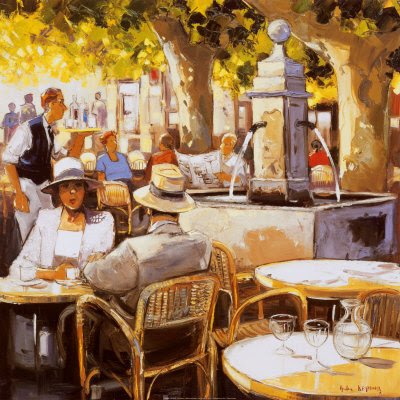
Jake sits alone outside the Café Les Deux Magots intensely recording his ideas about how to preemptively predict when a complex system, like a nuclear power plant, is about to experience a failure when –
“Did you know the great Hemingway once spent a year living on benches in that park,” Emelia states in a tone suggesting they’ve been talking for hours as she confidently sits down at the table beside him. She points to a beautiful garden behind the Café with lush flowers and a generously manicured lawn. “He’d catch pigeons and eat them since he had no money for food.”
Jake looks up confused and unsure this beautiful woman is talking to him. “No, I didn’t know that,” he manages to force an awkward response. “But Hemingway is my favorite author,” he adds hoping that sounds sophisticated enough to impress a her.
Emelia recognizes how uncomfortable Jake is and enjoys the effect she has. “How much passion can you truly have for the genius of America’s greatest author without knowing how he dined?”
“I don’t know,” Jake stutters, uncomfortable with how easily she puts him off balance.
“This is what is wrong with the world,” Emelia continues. “I imagine you can tell me all kinds of meaningless facts about your favorite author such where he was born and when he died, but you cannot provide any insight into how he lived or the passions that drove him to write the way he did.”
“Well I-” Jake unsuccessfully tries to respond.
“So much of the world is lost when we look with our eyes and listen with our ears.” Emelia asserts from a position of control she has no intention of relinquishing.
“Well we take in what we can and -” Jake answers in an attempt to offer his meager response.
“I bet you’re an engineer.” She interrupts before he can finish. “You sit by yourself, lost in equations and lofty thoughts while around you a world is in constant motion. So caught up in trying to define a universe through mathematics you don’t see everything constantly changes. It is like Hemingway and his pigeons.”
“As a matter of fact I am an engineer,” Jake proudly answers. “A mechanical engineer.”
“I have a friend at university who took a mechanical engineering class,” Emelia states to further her control of the moment. “When I asked her why she would do such a thing, she says because there won’t be many girls in the class so her odds are good. A month later I ask her how the class is going and she tells me with great disappointment that while the odds are good, the goods are pretty odd.”
“Oh yeah,” Jake says while feigning offense. “Want to know the difference between an elephant and a girl who takes engineering courses?”
“What?” Emelia asks with faux intrigue.
“About fifty pounds,” Jake answers flatly. “Know how to make up the difference?”
“How?” Emelia asks already smiling in anticipation of the impending punch-line.
“Force feed the elephant.”
Emelia laughs at the surprise ending while inventorying her current campus to determine if the joke contains a modicum of truth. “I can’t wait to tell my friend that one. She’s as skinny as me, but obsessed with being over-weight.” Now it’s Emelia’s turn to counter. “Of course, that harsh critique only validates the old adage that engineers are people who are good at math but lack the social skills necessary to be accountants.”
“Ouch,” Jake laughs dramatically. “But sadly true. And for the record,” he adds to defend himself, “I notice the world beyond my equations.”
“How?” Emelia challenges.
“I noticed how beautiful you are before you even sat down,” Jake responds proud for finding the courage to say something so bold while simultaneously wishing he hadn’t said something so embarrassing.
“Really, that’s how you see me?” Emelia fires back pretending to be offended. “I am so much more than that if you could look with the eyes of a poet.”
“Not really much of a poet,” Jake shamefully confesses.
The more awkward Jake behaves the more emboldened Emelia becomes. “Everyone’s a poet,” she states in absolute terms, “just some more repressed than others.” She continues unrelenting. “Look again, tell me what you see.” Emelia enjoys her assignment because she knows it’s impossible. Even poets are bound by metaphors describing women in terms of beauty. To add additional drama, she leans across his small table resting her chin on folded hands.
Jake squirms in his chair uncomfortable being put on the spot and the ease in which she challenges him beyond his comfort zone. He’s uncertain how to respond to a point a view he has no experience with.
“Come on,” Emelia teases. “There’s a poet inside the boy who lives inside every man. So tell me, what do you see when you look at me?” She enjoys toying with Jake as much as she appreciates how hard he’s working to get his response just right.
From Jake’s perspective this might as well be the polygraph test he took when he started at Los Alamos. Hell, even that isn’t this painful. He struggles to muster all his mental might in order to come up with something she wants to hear. In the end he surrenders his logical reasoning to the only thought he has, “I see Mona Lisa.”
“What?” Emelia laughs in surprise throwing herself comfortably back in her chair. “I’ll marry the man who can convince me I am like the majestic Mona Lisa.”
Still threatened by the most beautiful and captivating woman he’s ever encountered, Jake rises to the challenge; or at least attempts to. “I am not saying you look like Mona Lisa,” he restarts his last ditch effort, “I’m saying I see her in you.”
“I will say this about you Monsieur,” Emelia flirtatiously responds. “You know how to peak a lady’s interest. Tell me more, and keep in mind, your answer completely determines whether or not I marry you.”
“I saw the Mona Lisa yesterday,” Jake stammers to say as he takes his shot. “On first pass I just saw a woman of modest physical beauty.”
“This is how you see me?” Emelia interrupts with faux anger unable to pass up the opportunity to toss him further off balance.
“Ah, no, not at all,” Jake stammers to recover. “Because the more I looked the more her layers of complex inner wonder were revealed. By the time I’m done, I understand she not only embodies a beauty both seen and unseen, she represents the beauty that comes from struggles we as mortals endure throughout life but don’t have a language to quantify. And that I’ve come to understand, is true beauty.”
“Well Monsieur,” Emelia starts in an effort to stall long enough to formulate a response, “that is a far more fascinating response than I anticipated.”
“So we’ll marry then?” Jake asserts with playful confidence aware he nailed his response and is now the one with the upper hand.
“I don’t see where I have any alternative.” Emelia answers dismissively in an attempt to flirt her way back into control.
“Then I propose dinner tonight to negotiate the terms of our engagement.”
“Hold on just a darn minute there cowboy,” Emelia again attempts to win back control by using what she thinks is common American slang. “That sounds more like a discussion you need to have with my Papa. If you want to ask me out, you have to do so properly.”
“Pardon my manners mon ami,” Jake restarts still confident he has conversational control.
“It’s Emelia,” she interrupts continuing her efforts to regain dominance.
“Pardonnez-moi, Emelia,” Jake attempts to be charming. He takes the fact she told him her name as sign things are going well. This in turn further emboldens him. “I would be honored if you, as my future wife, would grace me with your presence at dinner this evening.”
“Well I don’t know,” Emelia slow plays, “I suppose I should accept.” She stands realizing she’s won but ironically at the same time lost. She won in the sense that she got him to invite her to dinner but lost in the sense that within the context of their flirtatious role-playing, she now has to marry him. “We’ll meet here at seven,” she asserts as a woman trained in the charms of winning while simultaneously loosing.
“Do you want to have drinks, or just dinner?” Jake asks unsure about French protocol.
“I believe that is something my future husband must decide.”
“Drinks it is,” Jake asserts.
Emelia knows the ball’s back in her court, but is uncertain how to depart. If it were her friends they’d hug, Americans however, aren’t big on such profound displays of tenderness; even though they’re now engaged. For the first time since they started their repartee, her awkwardness leaks through. “Adieu, I guess,” Emelia says giggling a little while backing up.
“Ah, seven then,” Jake stammers in a bizarre cocktail of awkwardness mixed with an engineer’s brand of eagerness.
By now Emelia’s backed up enough for her confidence to return and to decide on the perfect ending for their magical first encounter. “Louie,” she laughs while holding his breath with her eyes. “I think this is the beginning of a beautiful friendship.” With that she abruptly turns and sashays down the sidewalk leaving Jake to sort out what’s transpired.
“The name’s Jake,” he’s finally able to shout after her not realizing she’s quoting from the movie Casablanca; a movie he’ll re-watch many times with his beautiful bride in the years to come.
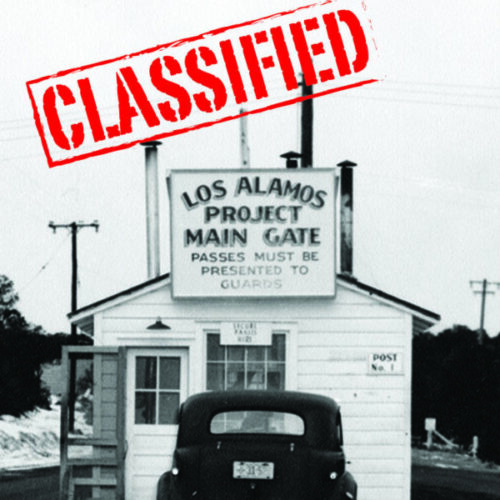

This is a fantastic web page, will you be involved in doing an interview about how you developed it? If so e-mail me!
Thanks, no one’s inviting me to interview yet but if it happens, I will.
Hi there! This post couldn’t be written much better! Looking through this post reminds me of my previous roommate! He constantly kept preaching about this. I’ll forward this article to him. Pretty sure he will have a great read. I appreciate you for sharing!
Thanks
Youre so cool! I dont suppose Ive learn anything like this before. So nice to seek out any person with some original ideas on this subject. realy thank you for beginning this up. this website is one thing that’s wanted on the net, someone with a little originality. helpful job for bringing something new to the web!